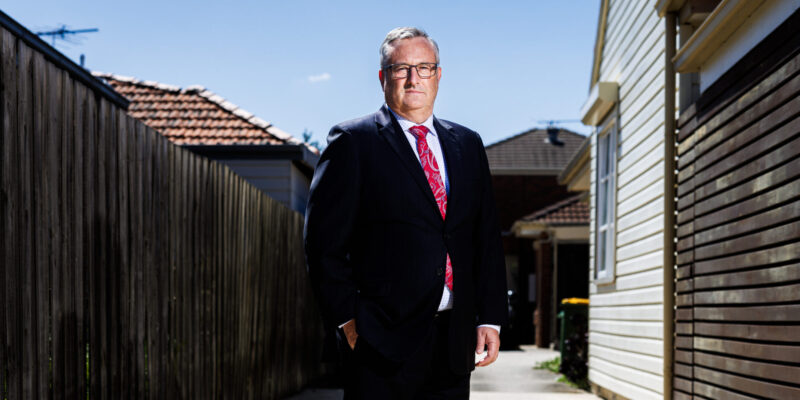QLD property law overhaul an incredible step forward
Sweeping reforms fix a “frightening” lack of seller disclosure obligations under existing state laws, high-profile conveyancer Kiani Mills says.

SWEEPING new property laws set to take effect in Queensland that are the biggest reforms to the sector in decades are long overdue.
They fix a “frightening” lack of seller disclosure obligations under existing state laws, high-profile conveyancer Kiani Mills told Australian Conveyancer.
Mills, founder of Melbourne-based residential conveyancing firm Imperiale and creator of the popular podcast Success x Happiness, said her firm’s expansion to Queensland was daunting given the state lagged other parts of the country on protections for property buyers.
“It was frightening and quite petrifying that there was no disclosure,” said Mills, a licensed conveyancer with extensive training in both property law and conveyancing.
Biggest overhaul in decades
In what has been called the biggest shakeup to Queensland property laws in 50 years, a seller in the state must, from the start of August, provide a buyer with a disclosure statement and prescribed certificates in relation to a property before a contract of sale can be signed.
The reforms aim to bring Queensland laws up to contemporary standards by delivering more transparency and fairness for both buyers and sellers in property transactions.
The impact of non-compliance is high, with the overhaul meaning that if the new seller disclosure rules are not met a buyer, in some circumstances, can terminate a sale contract.
Mills said the big changes were needed to get the state up to speed with the rest of Australia.
“There was no transparency, there was no responsibility on a seller to disclose anything,” Mills said of the outgoing Queensland laws.
“The fact there is no disclosure means that that client, for a very basic example, doesn’t know what zone the property is that they’re buying in, they don’t know if there’s any restrictions on the title to be able to build a block of units or whatever it is that they want to build – they have to go and do that homework themselves.
“This is why I’m so surprised that buyers agents and buyers advocates aren’t as prominent in Queensland as in other states.”
Changes positive for house hunters
Perhaps a loss for buyer’s agents, Mills said the changes would be a boost for would-be home buyers statewide, with Queensland finally shifting away from its strict “buyer beware” stance.
The reforms meant a “buyer is stepping into a contract where they have full transparency on what they’re buying and there are no surprises all the way up to settlement”, she said.
According to Mills, Queensland was catching up with “every other state where there’s at least basic disclosure” providing “a client a second choice as to whether or not they proceed”.
“In Queensland there isn’t really any opportunity to do that unless you have an outside representative because the solicitors and conveyancers aren’t involved until the contract has been signed,” she added.
“Now Queensland is coming into line with the majority of the rest of the country, particularly its main competitors which is the east coast – Victoria and NSW – so it is making it more streamlined across the board.”
Mills urged conveyancers, especially those with operations confined to Queensland, to ready themselves for the property law changes – the biggest in a generation.
Along with new seller disclosure regime, the reforms bring in new provisions on delays of settlement due to adverse events like bad weather or public health, easements, and commercial leases. They also change buyer rights on destroyed or damaged properties.

Extra burden on conveyancers
“It’s going to mean that internal processes need to change, it’s going to mean that staff are going to have to be adequately trained, with time, as this is coming up on August 1,” Mills said.
In Mills’ opinion, senior staff should take the reins in preparing for the new system and firms scrambling to get compliant may also need more boots on the ground.
“I don’t think it’s going to be a job for a junior to do,” Mills said.
“Understanding and knowing what actually needs to go into the contract based on each individual sellers requirements and that individual property’s make up is going to be really important.”
She added: “It’ll be extra work in man hours but it should be a streamlined process so long as you’re asking the right questions and ordering the right certificates to protect your client.”
Mills’ comments echo those of the Queensland Law Society which has urged buyers and sellers in the state to understand their responsibilities before the new legislation comes into force.
QLS, in the wake of the legislation passing parliament, called for greater public awareness of the changes as well as community education, support and resources about the overhaul.
Step in the right direction
For firms dragging their heels, Mills urged consideration of not complying.
“Remember the downside is that a buyer can – based on the new legislation – be able to terminate the contract at any stage prior to settlement if there is any incorrect info missing info provided in the disclosure statement. That’s absolutely on the solicitor.”
The compliance burden was much lighter, she said, on firms such as Imperiale that already operated in jurisdictions with similar seller disclosure regimes in place.
“It’s the way we’ve always done it”, she explained, referring to states like Victoria and NSW.
Ultimately, the prominent conveyancer said it was her “true and honest belief in this it’s an incredible step in the right direction for Queensland”.
“It’s going to mean there’s more of a responsibility on the solicitors before the property sells to get that disclosure right and correct,” she said, warning against the ‘fear of the unknown’.
“People will leave it right to the very last minute and unfortunately clients will suffer as a consequence. There is no doubt that there will be the firms that are late adopters – the firms that don’t take it as seriously as they need to.
“There will be extra manpower needed at the start but it’s like the introduction of electronic conveyancing which was one of those things which was slowly adopted by Queensland and now look at us – we’re flying.”






